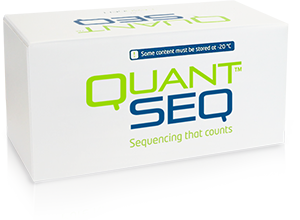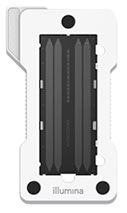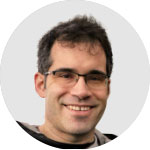LEXOGEN RESEARCH AWARD
Lexogen Research Award – “Controlling RNA-Seq Experiments Using SIRVs“
Winners
- Anne-Margrethe Krogsdam
Institution: Institution: Department of Bioinformatics and I-Med NGS, Innsbruck Medical University, Innsbruck, Austria - Enzo Medico
Institution: Laboratory of Oncogenomics, Candiolo Cancer Institute, FPO-IRCCS, Italy
Recommendation program: Claudio Isella - Corey Nislow
Institution: Faculty of Pharmaceutical Sciences, The University of British Columbia, Canada
About
Sequencing for all! An award for difficult RNA samples.
Gene expression profiling using Next Generation Sequencing (NGS) is empowering an ever-increasing range of researchers to answer highly relevant biological and medical questions. At Lexogen, we are dedicated to developing innovative technologies for NGS and making these accessible for all scientists.
With the Lexogen Research Award we wish to provide a chance for researchers to utilize more NGS. We ask you to submit a description of the project where you would use NGS and Lexogen’s RNA-Seq sample prep. The winners shall be given a product of Lexogen together with a free sequencing run and data analysis.
Topic
The topic of this Research Award is “High quality from low quality: Accurate gene expression profiling of low quality or FFPE samples“.
RNA sequencing is rapidly becoming the platform of choice for gene expression profiling projects. However, not all samples are created equal, and not all researchers have the luxury of working with high quality RNA for NGS library preparation. Field-collected samples, historical samples, or heavily degraded samples from formalin-fixed paraffin-embedded (FFPE) tissues all present challenges for library preparation.
The QuantSeq family of mRNA-Seq Library Prep Kits has been developed by Lexogen to enable efficient generation of sequencing libraries also from low quality, or FFPE RNA samples. QuantSeq is Lexogen’s unique approach for expression profiling and works by sequencing the 3’ ends or any targeted regions of transcripts, significantly reducing the number of NGS reads required to determine gene expression.
Lexogen is delighted to announce its new Research Award “High quality from low quality: Accurate gene expression profiling of low quality or FFPE samples“. Submit a description of your research project, and win a QuantSeq 96 reaction 3’ mRNA-Seq library prep kit and a free sequencing run. Recommend this Research Award to a friend / colleague and win as well!
Prize

QuantSeq 3’ mRNA-Seq Library Prep Kit with 96 preps (value of USD 2,079.00)
- Genome-wide analysis of gene expression
- Cost-efficient alternative to microarrays and standard RNA-Seq
- Down to 0.5 ng of input degraded or FFPE total RNA
- Ready-to-sequence libraries in 4.5 hours
Learn more about QuantSeq.

Who Can Apply
Any individual researcher or research group in academic institutions or research organizations will be eligible for the award. Please note that official organizational email address will be needed for the application.
Recommendation Program
If the topic of this award does not fit to your interests, you can still benefit from it. Simply recommend it to your friends or colleagues who might be interested to apply and ask them to write your name in the recommender section of the application form.
If the recommended person wins the award, you will receive a special prize – an Amazon voucher for USD 200.
Selection Process

Dr. Carlos Cruchaga
Associate Professor at Washington University in St. Louis
Read the biography

Dr. Michael Wilson
Canada Research Chair in Comparative Genomics
Scientist in the Genetics & Genome Biology Program at SickKids Research Institute
Assistant Professor at the Department of Molecular Genetics at the University of Toronto
Read the biography
Application
The application process is closed.



